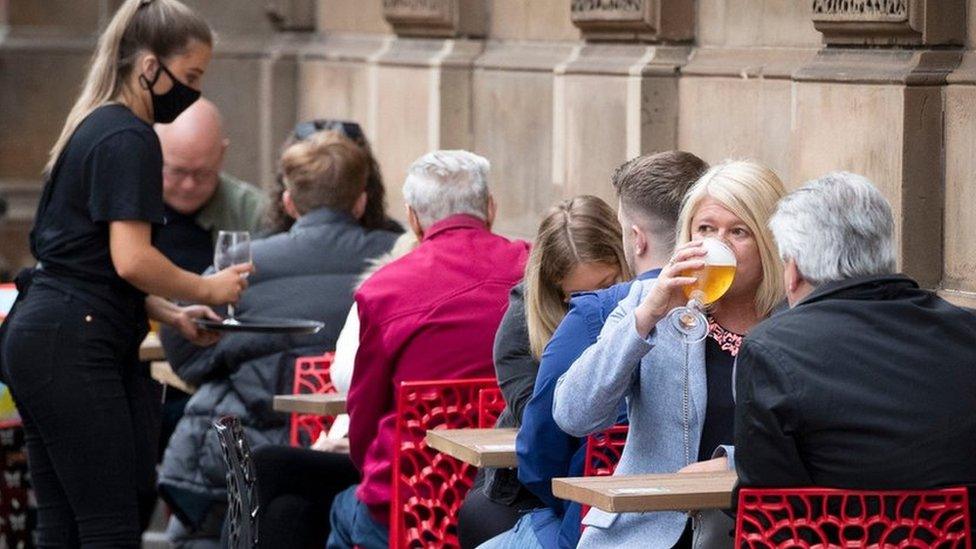Covid in Scotland: Drop-in vaccine centres open in Glasgow
- Published
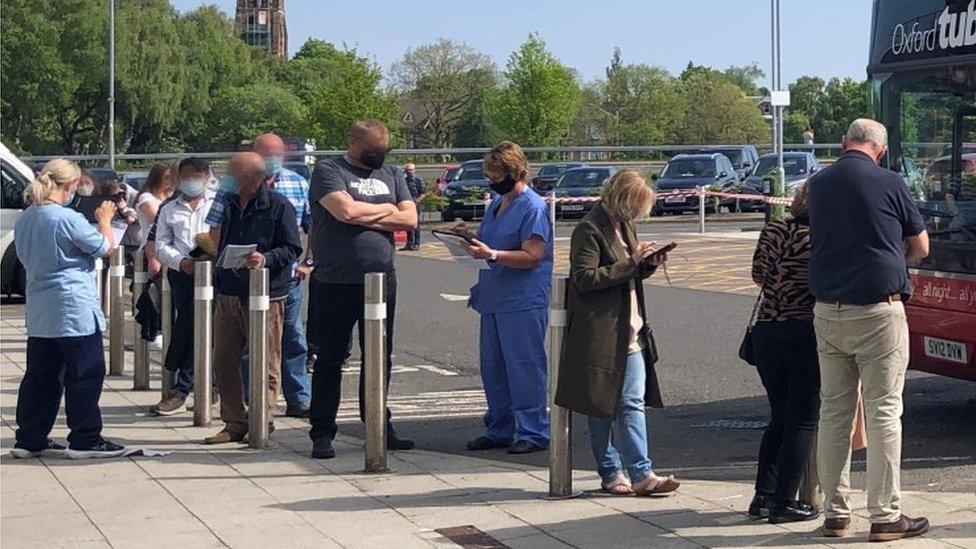
People in Glasgow queue to get vaccinated at the New Victoria Hospital drop-in centre
A new drop-in vaccination centre has attracted queues of people after it opened in Glasgow on Saturday.
The centre is aimed at those in the city aged over 40 yet to have a first vaccine dose or who have waited over 10 weeks for a second dose of AstraZeneca.
The first minister confirmed on Friday that Glasgow would continue to be the only part of Scotland to remain in level three Covid restrictions.
It follows figures showing case numbers rose by about 30% in the past week.
Scotland recorded 583 new coronavirus cases on Saturday, but no further deaths of people who had tested positive.
The daily Scottish government figures showed the test positivity rate had dipped slightly from 2.6% to 2.5%.
The total number of people receiving a first dose of a Covid-19 vaccine rose to 3,215,770 and 1,998,409 have received their second dose.
A Covid-19 vaccination drop-in began running in the south of Glasgow at the Gurdwara in Pollokshields earlier this week.
That prompted another to be opened on Saturday at the New Victoria Hospital minor injuries unit carpark in the city, where queues of people gathered for an early appointment.
A similar facility will run from the SSE Hydro from Sunday, with others operating in Paisley, Bearsden, Alexandria, Renfrew, Johnstone, Greenock, Dumbarton, Eastwood, Kirkintilloch, Clydebank and Port Glasgow, external from the start of next week.

Humza Yousaf visited the vaccination centre at the Hydro in Glasgow on Saturday.
The centres will have a set number of appointments and operate on a first-come, first-served basis.
Health Secretary Humza Yousaf said there would be queues but encouraged people to take advantage of the service.
Speaking at the vaccination centre at the Hydro in Glasgow, Mr Yousaf said: "This has been really successful in the G41 and G42 areas and now we are rolling out the drop-in clinics across the week.
"Have a look at where these are on the Greater Glasgow NHS website and come along if you meet the criteria. If people do that and self-isolate when they need to hopefully the situation will stabilise and Glasgow can move from level three to level two."
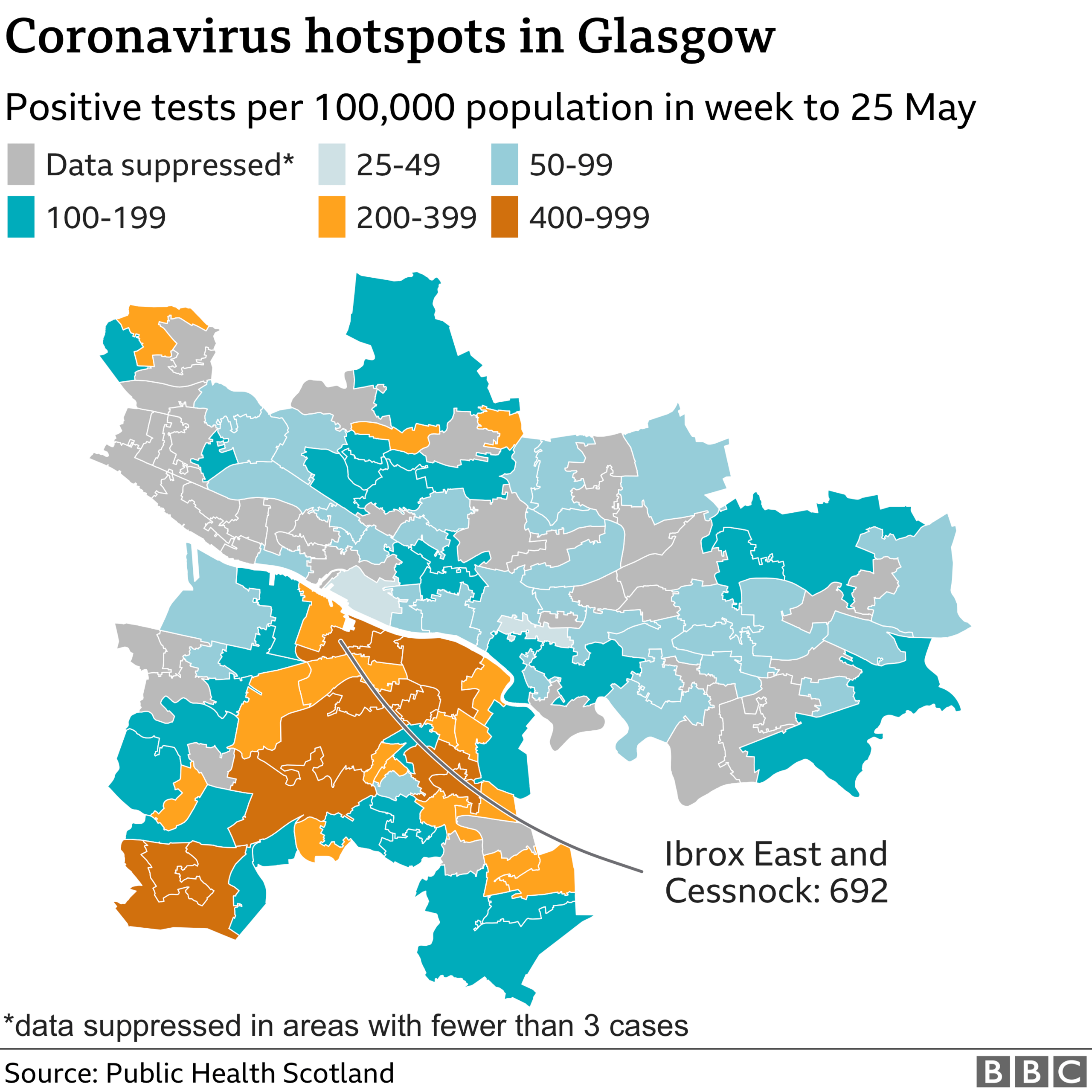
There had been speculation ahead of the Scottish government's Covid briefing on Friday that Glasgow would join the rest of the Scottish mainland in level two.
But First Minister Nicola Sturgeon said there was concern about an outbreak of the Indian variant of the virus which was now accounting for at least half of the new Covid cases in the city.
Ms Sturgeon said it was hoped Glasgow would be able to move to level two on Saturday of next week - with a final decision being taken on Tuesday.
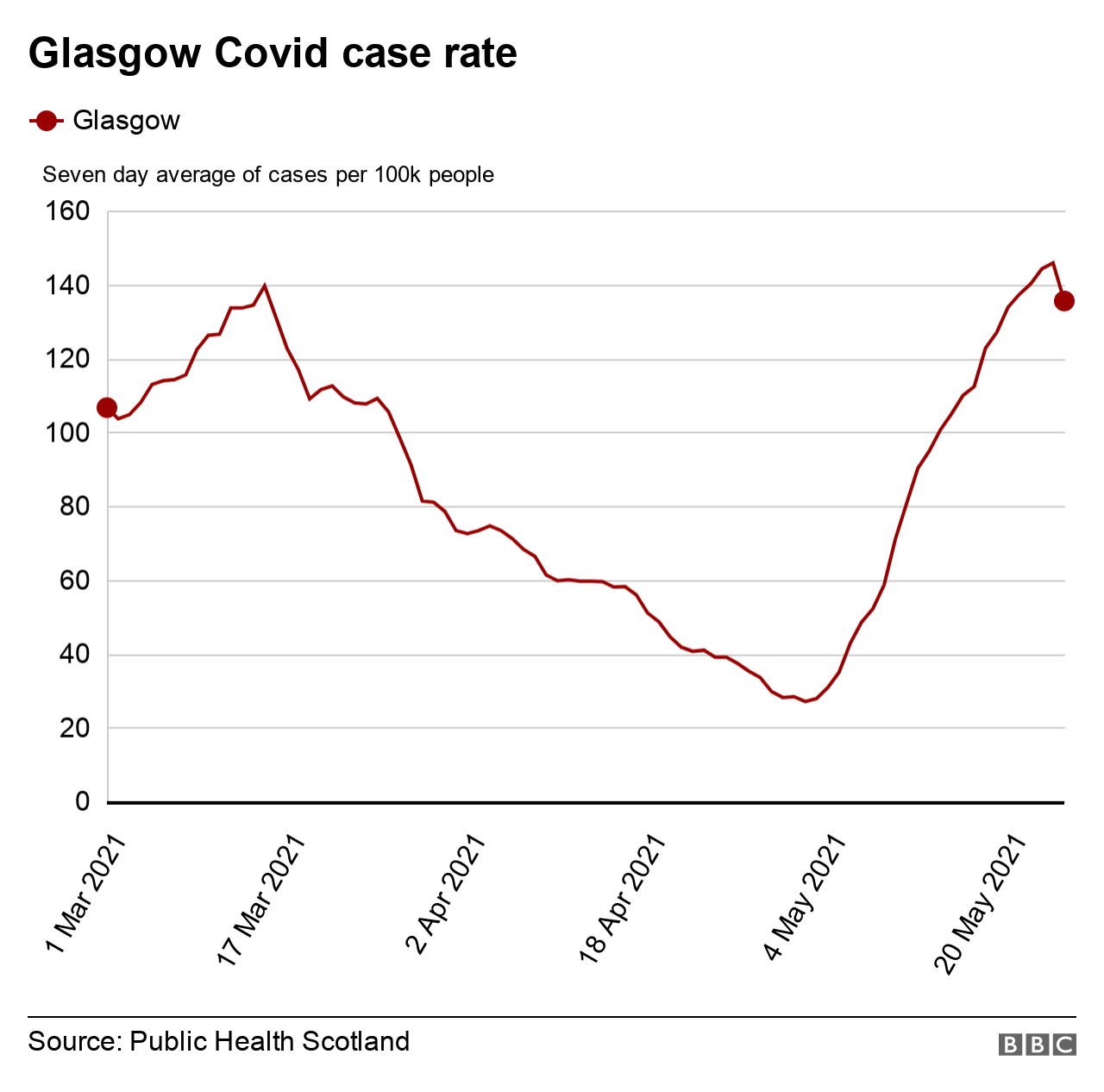
Figures released on Friday revealed the first fall in Glasgow's case rate in almost a month
And she said there were signs that the situation in Glasgow was beginning to stabilise, with the number of new cases falling in recent days in the postcode areas in the southside of the city which had been at the centre of the outbreak of the Indian variant.
On Saturday, the national clinical director said he believed the planned easing of more restrictions on 7 June would happen, if not for every area.
Prof Jason Leitch said: "We have got a lot of the country at quite low numbers - the Islands, the Border, Dumfried and Galloway and the north-East.
"But there are some challenges - Glasgow, Greater Glasgow, and - creeping in - Ayrshire on one side and Lanarkshire and Lothian on the other."
He added: "We need to be careful. I am confident 7 June will still be a significant moment in Scotland. I cannot guarantee how much of the country will move from two to one, but I think some will."
The level three restrictions mean people are not allowed to meet in each other's homes, and pubs and restaurants are not able to sell alcohol indoors. Non-essential travel in and out of the city is also prohibited.
Many Glasgow business owners say they are struggling to survive after spending more than 270 days under tough restrictions, and have criticised the Scottish government for not giving them more financial support.
And opposition parties had demanded urgent action to get the city back on a level footing with the rest of the country - where restrictions have eased in recent weeks - as quickly as possible.
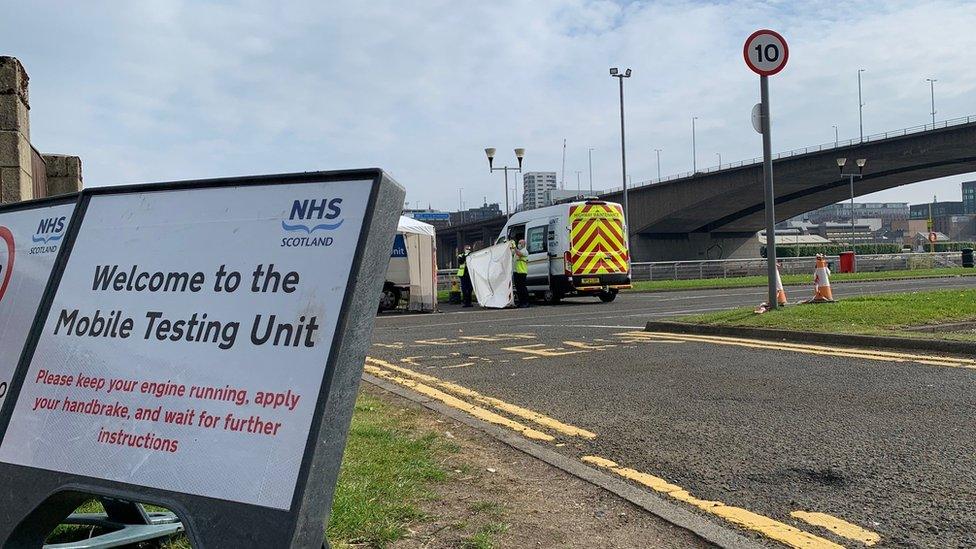
The drop-in vaccination centres will operate across the Greater Glasgow and Clyde health board area
The rest of mainland Scotland is currently due to join most of the country's island communities in level one on 7 June, before the country moves to level zero - meaning something close to normality - on 28 June.
Despite the rise in case numbers there has been no significant increase in the number of people being hospitalised with the virus - which public health experts say suggests that it is mainly younger, unvaccinated people who are contracting it.
The number of infections has risen from 112 cases per 100,000 to about 136 per 100,000 - over the past week, while the rate of positive tests has also crept up from about 4% to 4.4%.
The R number - effectively the rate at which the virus spreads - for Scotland is now estimated to stand at about 1.3, largely driven by the number of cases in Glasgow.
Nicola Sturgeon is due to give an update next Tuesday on whether, and to what extent, the proposed move to level one for mainland council areas will proceed as planned.
The number of people in hospital with the virus has increased from 68 three weeks ago to 90 today - but there were more than 2,000 people in hospital at the peak of the second wave in January, and the number of Covid patients in intensive care is currently very low.
The first minister said she had considered whether additional restrictions needed to be introduced in three other council areas - Clackmannanshire, Renfrewshire and East Renfrewshire - where there are relatively high levels of the virus.
But all three areas have relatively low populations and the number of cases is low in absolute terms - with public health teams confident that the outbreaks are able to be controlled using existing measures.

LOCKDOWN RULES: What's changing and when?
GLOBAL SPREAD: How many worldwide cases are there?
CASE RATES: What's the latest in Scotland?
NEW VARIANTS: How worried should we be?

- Published28 May 2021
